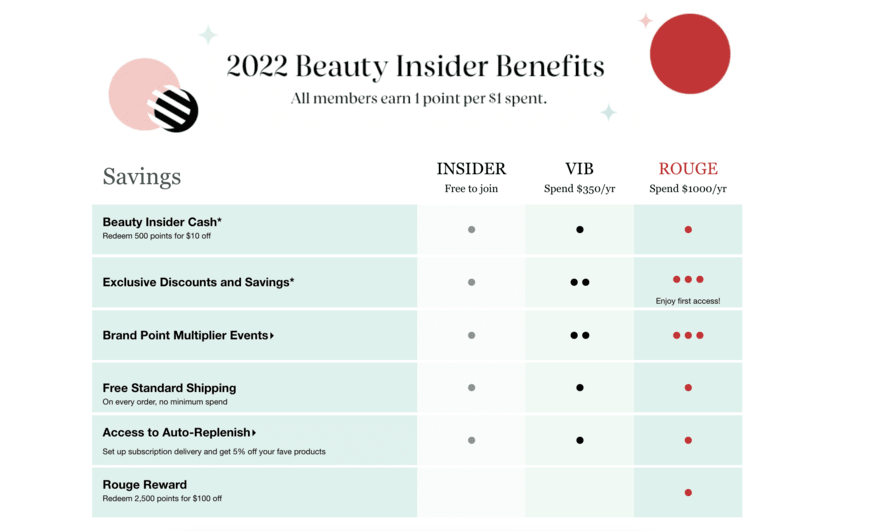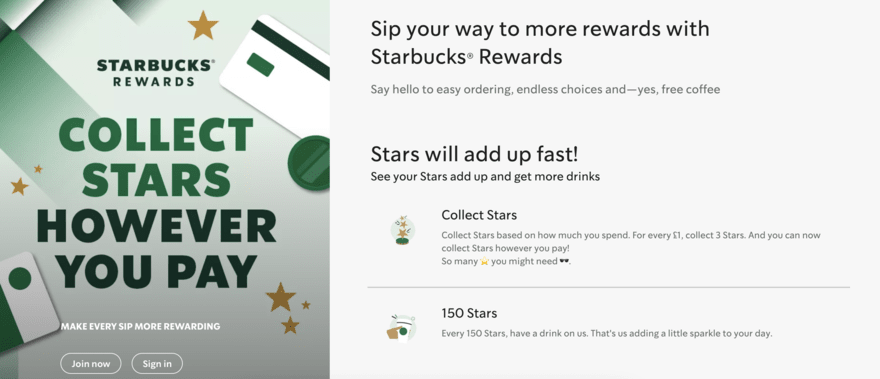How to Create a Loyalty Program for Your Online Business
Our independent research projects and impartial reviews are funded in part by affiliate commissions, at no extra cost to our readers. Learn more
Building a loyal customer base is usually a key goal for any online business.
Loyal customers who recognize your brand, trust your products, recommend you to friends, and return time and time again are worth their weight in gold.
So how can you build customer loyalty? A customer loyalty program is a popular solution.
A way to encourage loyalty to your brand, usually via incentives, customer loyalty programs are popular with brands of all shapes and sizes.
In this article, we’ll explore how to create a loyalty program with a step-by-step guide from our ecommerce experts.
What is a Customer Loyalty Program?
A customer loyalty program rewards customers who repeatedly shop with your brand.
It’s a form of customer retention that encourages people to keep coming back and making purchases. Usually, customers will need to enroll in your loyalty program, and each purchase they make will earn them a reward.
Those rewards could be anything from discounts and special offers to points that they can accumulate and exchange for products.
Many customer loyalty programs also offer incentives for other customer activities, not just purchasing. These include referring friends and following the brand’s social media accounts.
Why Create a Customer Loyalty Program
The key benefit of creating a customer loyalty program is obvious: they help to create loyal customers.
But what other benefits do they hold for your business?
- They encourage users to shop with your brand over your competitors
- They allow you to better track customer behavior
- Customer loyalty programs lead to more customer referrals
- It’s usually more cost-effective to target existing, happy customers than it is to reach brand-new ones
- They help to generate user content and customer reviews for your business
Creating a Customer Loyalty Program
Take a look at the step-by-step guide below that takes you through everything you need to do to launch a loyalty program.
Step 1: Get to Know Your Customers
First things first, you need to get to know your current customers.
Your existing customer base is the key target market for your loyalty program, so understanding their customer behaviors and needs is crucial.
Some key questions to ask yourself are:
- How much do your customers buy each year?
- How frequently do they make a purchase?
- What product lines interest them the most?
- Do they shop with any competitors?
- Can you upsell them other products?
- Are they satisfied with their experience?
Step 2: Determine Your Loyalty Program Goals
Before you can launch a customer loyalty program you need to determine what you want it to achieve.
These goals will help you to determine the type of loyalty program and incentives you opt for (more on those later).

For example, if you want to boost the trust of your business, you can offer incentives for customers who leave you a review.
Your customer loyalty program’s goals are the behaviors you’re willing to reward. So if you want more orders and profits, you’ll need to reward customers for making a purchase. Similarly, if you want to boost a specific product line, you’ll need to reward customers who buy those specific products.
Step 3: Choose a Type of Loyalty Program
Did you know that there are multiple different types of loyalty programs that you can choose from for your business? Let’s take a look at the types of customer loyalty programs below:
Points-based Loyalty Programs
Points-based programs see customers earn points for each action they take. Usually, different actions will reward them with different amounts of points. For example, a purchase over $100 may result in 10 points, and leaving a review results in four points. Customers can then collect these points up and exchange them for your chosen incentive such as money to spend on your online store.

Tiered Loyalty Programs
Tiered loyalty programs give customers different incentives based on how much they spend. For example, purchases under $50 may result in a $10 gift card whilst purchases over $100 may result in 50% off their next purchase.
Value-based Loyalty Programs
Value-based loyalty programs, on the other hand, are a great way of showcasing a brand’s values. For each purchase a customer makes, the brand donates a % to their chosen charity or good cause.
Gamified Loyalty Programs
Gamified loyalty programs provide games or challenges for customers that result in rewards, helping to keep them interested and engaged.
Step 4: Personalize Your Loyalty Program
If you have a good customer data collection system in place then you can use this data to help personalize your loyalty program.
For example, if you store data on the past purchases of customers, you can monitor their buying behavior and determine which product lines customers are most interested in. You can then offer them an incentive to buy one of these products again.
Similarly, storing details like customer birthdays or anniversaries allows you to provide them with special incentives to purchase around that time of year again, such as bespoke birthday discount codes.
Step 5: Promote Your Loyalty Program
It’s all well and good having a customer loyalty program in place but if nobody knows about it then it’s a little pointless.
There are various ways you can promote your customer loyalty program to customers including:
- Featuring your customer loyalty program, the rewards available, and how to sign up as part of your email marketing strategy
- Directing customers on social media to sign up for your loyalty program
- Including a pop-up or section on your website that showcases everything to do with your customer loyalty program
- Featuring your customer loyalty program on your thank you page after customers have made a purchase
Step 6: Monitor Your Loyalty Program
Just like any strategy you implement for your online business, it’s important to monitor how your loyalty program performs and adjust it accordingly.
For example, if one of the goals for your loyalty program was to increase the average size of customer orders, you need to monitor your data to see if this is succeeding. If not, you can adjust the incentives and targeting of your program to better meet your goals.
How to Create a Loyalty Program: Summary
With this guide, you should now understand how to build a loyalty program for your brand that encourages customer loyalty and trust.
From points-based systems that customers interact with over time to a tiered program that offers incentives based on how much customers spend, there are various options and you’re sure to find the right customer loyalty program type for your business.
Make sure you let us know in the comments which customer loyalty program you use for your business and, if you found this article helpful, why not check out our guide on attracting customers to your online store next?
2 comments